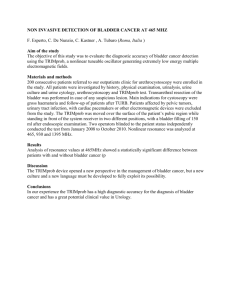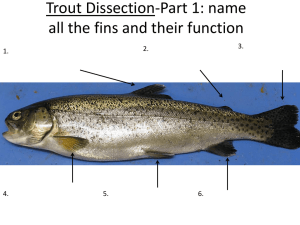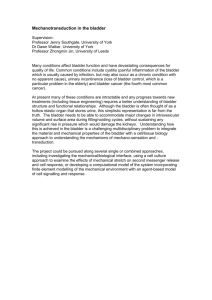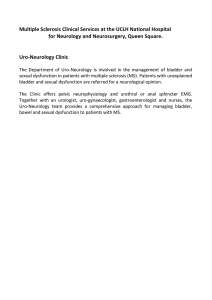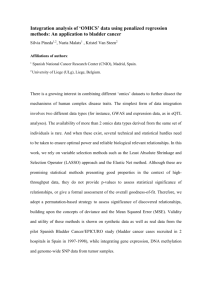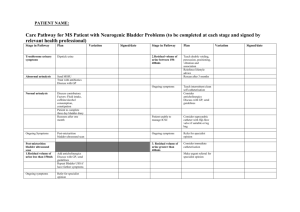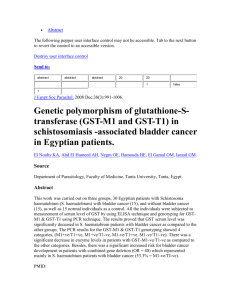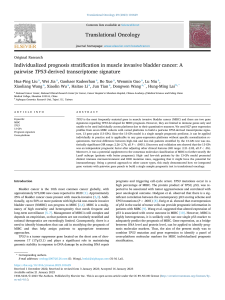Document 13330193
advertisement
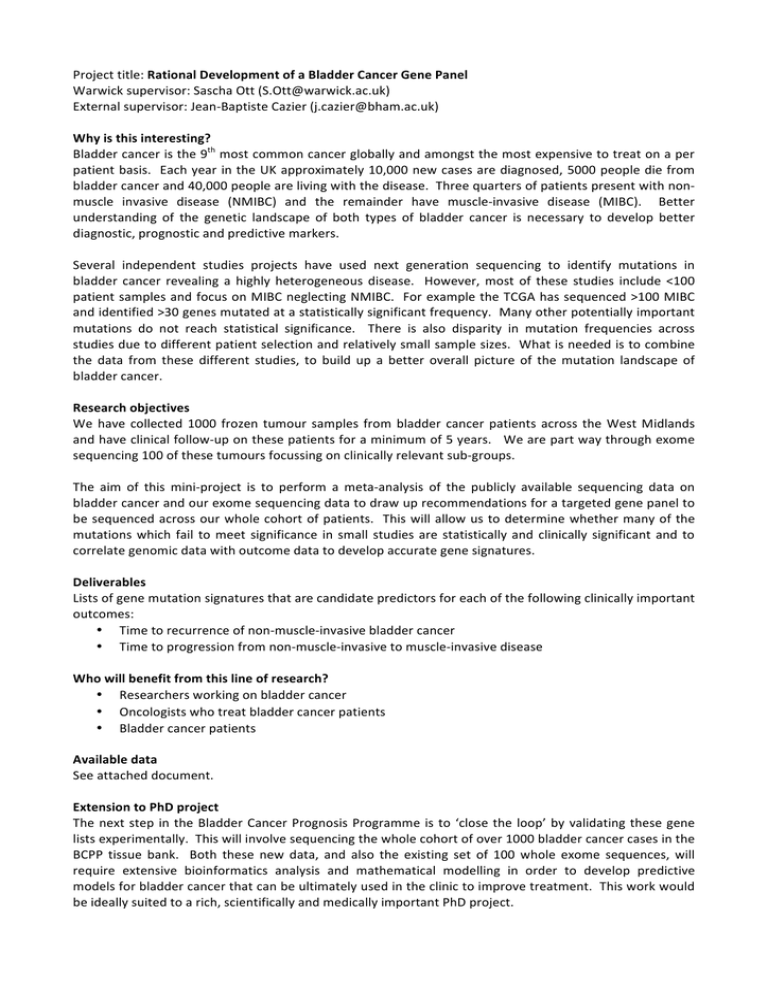
Project title: Rational Development of a Bladder Cancer Gene Panel Warwick supervisor: Sascha Ott (S.Ott@warwick.ac.uk) External supervisor: Jean-­‐Baptiste Cazier (j.cazier@bham.ac.uk) Why is this interesting? Bladder cancer is the 9th most common cancer globally and amongst the most expensive to treat on a per patient basis. Each year in the UK approximately 10,000 new cases are diagnosed, 5000 people die from bladder cancer and 40,000 people are living with the disease. Three quarters of patients present with non-­‐ muscle invasive disease (NMIBC) and the remainder have muscle-­‐invasive disease (MIBC). Better understanding of the genetic landscape of both types of bladder cancer is necessary to develop better diagnostic, prognostic and predictive markers. Several independent studies projects have used next generation sequencing to identify mutations in bladder cancer revealing a highly heterogeneous disease. However, most of these studies include <100 patient samples and focus on MIBC neglecting NMIBC. For example the TCGA has sequenced >100 MIBC and identified >30 genes mutated at a statistically significant frequency. Many other potentially important mutations do not reach statistical significance. There is also disparity in mutation frequencies across studies due to different patient selection and relatively small sample sizes. What is needed is to combine the data from these different studies, to build up a better overall picture of the mutation landscape of bladder cancer. Research objectives We have collected 1000 frozen tumour samples from bladder cancer patients across the West Midlands and have clinical follow-­‐up on these patients for a minimum of 5 years. We are part way through exome sequencing 100 of these tumours focussing on clinically relevant sub-­‐groups. The aim of this mini-­‐project is to perform a meta-­‐analysis of the publicly available sequencing data on bladder cancer and our exome sequencing data to draw up recommendations for a targeted gene panel to be sequenced across our whole cohort of patients. This will allow us to determine whether many of the mutations which fail to meet significance in small studies are statistically and clinically significant and to correlate genomic data with outcome data to develop accurate gene signatures. Deliverables Lists of gene mutation signatures that are candidate predictors for each of the following clinically important outcomes: • Time to recurrence of non-­‐muscle-­‐invasive bladder cancer • Time to progression from non-­‐muscle-­‐invasive to muscle-­‐invasive disease Who will benefit from this line of research? • Researchers working on bladder cancer • Oncologists who treat bladder cancer patients • Bladder cancer patients Available data See attached document. Extension to PhD project The next step in the Bladder Cancer Prognosis Programme is to ‘close the loop’ by validating these gene lists experimentally. This will involve sequencing the whole cohort of over 1000 bladder cancer cases in the BCPP tissue bank. Both these new data, and also the existing set of 100 whole exome sequences, will require extensive bioinformatics analysis and mathematical modelling in order to develop predictive models for bladder cancer that can be ultimately used in the clinic to improve treatment. This work would be ideally suited to a rich, scientifically and medically important PhD project.

